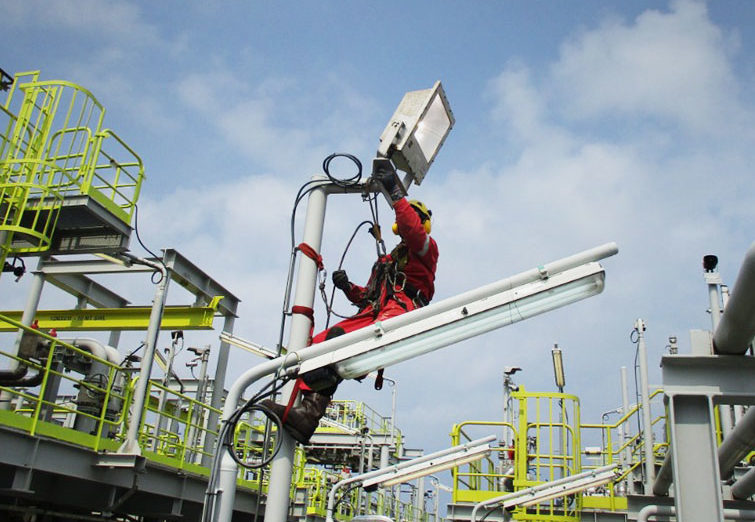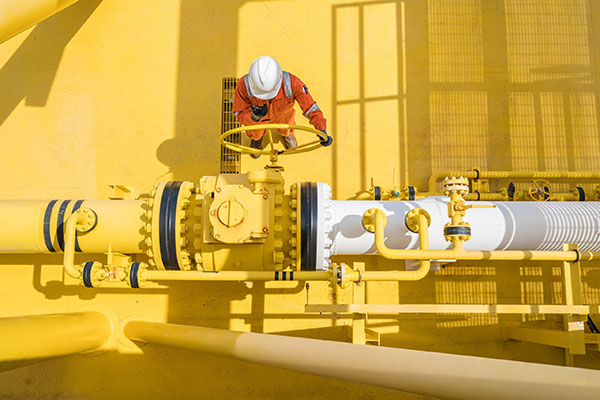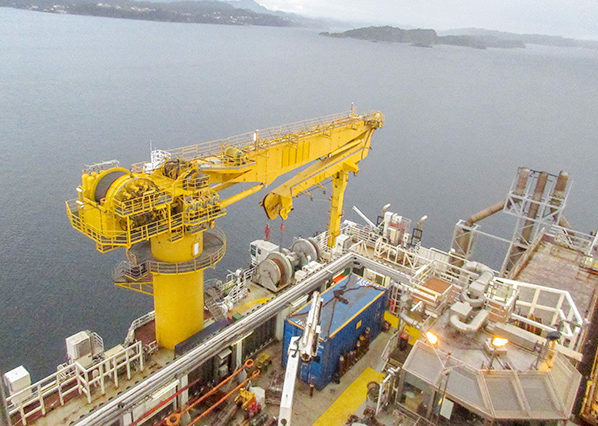Pre-Inspection Survey
With over 20 years of inspection experience on both onshore and offshore assets, we have established ourselves as a global expert in pre-inspection surveys, successfully completing dozens of these inspections to date.
Types of pre-inspection surveys
Pre-DROPS Inspection
Highlighting the systematic installation issues related to potential dropped objects onboard assets, this survey focuses on the methods of retention used for main equipment installed at height including but not limited to:
- Floodlights
- CCTV Cameras
- Spotlights
- Corrosion shielding
- PA Speakers
- General bolting arrangements/methods
We work together with our clients and align our strategies based on their internal DROPS procedures, EPC contracted agreements regarding DROPS requirements, and in accordance with the Best Practices (SfS, DROPS Online, Shell ABC, etc.). With our audit reports, we give both EPC and our clients ample time to rectify findings before asset handover, DROPS baseline and sail away to ensure EPC contractors fulfil their contractual obligations and allow for safer operations and minimal baseline inspection costs.
Conducted over several days by our team of specialists, the survey is carried out through a visual inspection from walkways and decks with fall arrest, covering all the necessary areas:
- Derrick / Tower / Mast
- Flare tower
- Helideck
- Cranes
- Laydown Areas
- Walkways (Primary)
- Modules
- Escape ways
- Navigation towers
- Accommodation Areas
- Lifeboat Areas / FRC
- Other necessary locations requested by the client

Pre-HAS Inspection
The aim of our Pre-HAS inspection service is to highlight as early as possible the systematic installation issues that threaten the safety of workers and the integrity of the equipment within the hazardous areas. The survey’s goal is to equip our partners with detailed reports of our findings, allow correction of issues before the asset installation, and save time and money by reducing the number of findings during later inspections.
Prior to the initial hazardous area survey, we examine the rig’s build plan and layout to assess the following common findings:
- Incorrect gland installation
- Over tightened
- Wrongly installed or assembled
- Rings and Teflon inserts missing
- Missing plugs
- Equipment not suitable for the EX zones
- Missing bonding and earthing issues
- Inadequate strain relief of cables
- Holes or bolts missing in explosion proof panels
- Missing mandatory EX inspection/repair equipment (rubber mats, suits, lockouts, meters etc)
The close and visual inspections from walkways and decks are carried out by a team of certified specialists with deep industry experience. The survey is conducted for several days and covers the following main equipment within the necessary areas:
- Derrick / Drill Floor / Tower
- Moon Pool / Turret
- Mud Rooms (Treatment Room, Mud Pit Room, Agitators, Tanks, Mud Pit Room, etc.)
- Shaker Houses
- Battery Rooms
- Well Test Area
- Modules
- Hose Reels
- Heli Fuel Tank / Skid
- Paint Stores
- Other necessary locations requested by the client

Pre-NR Inspection
The purpose of a Pre-NR inspection is to allow early detection of systematic equipment issues and documentation errors related to the requirements of the Brazilian Compliance onboard assets destined or tentatively going to Brazilian waters. The survey also determines the current compliance status of a vessel to give our clients enough time to complete the requirements needed to meet the Brazilian Compliance standards. These requirements include but are not limited to equipment colours, documentation, electrical panels, equipment protection, helideck inspections and fire plans, etc.
We can carry out inspections on new builds, conversions or vessel upgrades — covering the basic requirements across the most relevant NRs to ensure compliance, minimise delays and avoid subsequent unnecessary costs.
Carried out by our team of CREA certified engineers, our Pre-NR inspection reports are proven accurate and concise, focusing on the main showstoppers seen during the inspection.
The survey ensures clients meet the following requirements:
- NR 10 – Safety in Installations and Electrical Services
- NR 12 – Machinery and Equipment
- NR 13 – Boilers and Pressure Vessels
- NR 26 – Safety Signs
- NR 30 – Health and Safety at Water Transportation
- NORMAM 01
- NORMAM 27
- IBAMA / CONAMA
